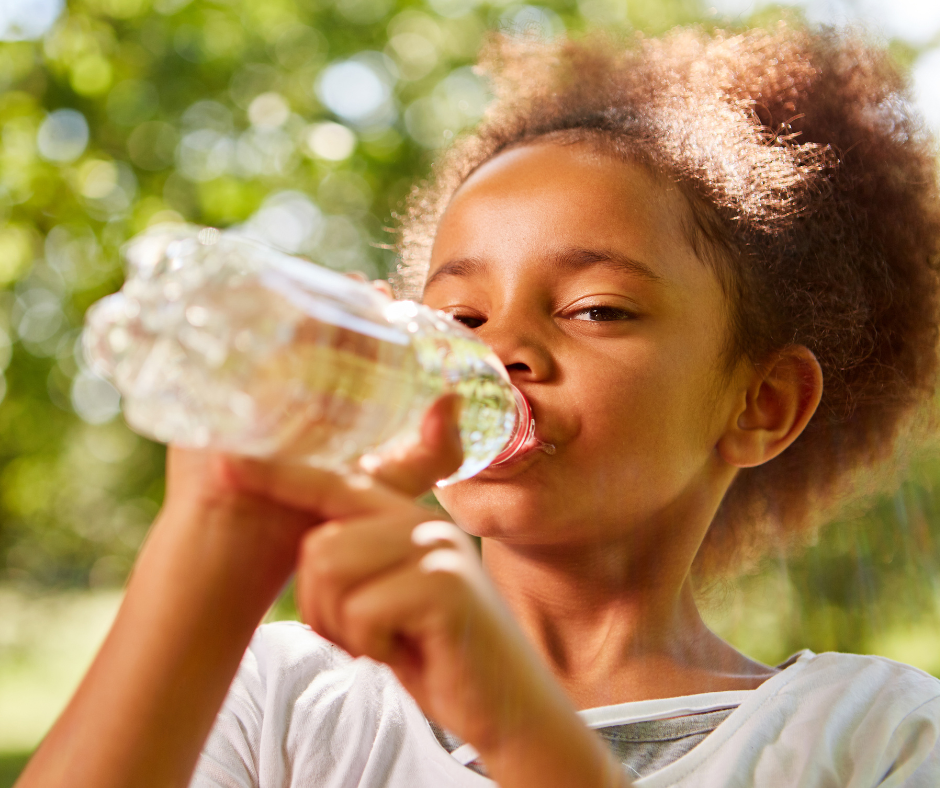What to Watch For: Dehydration

There’s nothing quite like summertime in Augusta, GA—whether you’re lounging by the pool, heading to the lake or beach for a weekend getaway, or cheering on your favorite athletes at a local sporting event. But with all that sunshine and outdoor fun comes an increased risk of dehydration, especially during the peak heat of the season.
High temperatures, humidity, and physical activity can take a toll on the body quickly—especially for children and older adults, who may not always recognize or communicate the early signs of dehydration. As you make the most of these hot summer days, it’s important to stay vigilant, stay hydrated, and know what symptoms to watch out for.
Here’s what you need to know about the signs of dehydration to stay safe this summer.
Symptoms of Mild to Moderate Dehydration
- Less active than usual
- Urinating less frequently (for infants, fewer than six wet diapers per day)
- Parched, dry mouth
- Fewer tears when crying
- Sunken soft spot of the head in an infant or toddler
- Fewer bowel movements (if dehydration is caused by lack of fluid intake); Stools will be loose if dehydration is caused by diarrhea
Severe Dehydration
In addition to the symptoms listed above, severe dehydration will also present as:
- Very fussy temperament in babies and infants
- Excessive sleepiness
- Sunken eyes
- Cool, discolored hands and feet
- Wrinkled skin
- Urinating only one to two times per day
Staying Hydrated
It’s always best to drink early and drink more than you might think – within reason. Feeling thirst is actually a symptom that you are already dehydrated – it’s your body’s way of communicating that to you! To ensure your child is drinking enough water, here’s a general guide:
Daily Water Intake Recommendations for Children:
| Age Range | Daily Water (Cups) |
| 1–3 years | 4 cups (about 32 oz) |
| 4–8 years | 5 cups (about 40 oz) |
| 9–13 years | 7–8 cups (56–64 oz) |
| 14–18 years | 8–11 cups (64–88 oz) |
This includes all liquids (milk, juice, water, etc.), but water should be the main source. If you know you’ll be out in hot weather, drinking electrolyte drinks can also help ensure you and your children are maintaining proper hydration. However, please note that many common electrolyte beverages and sports drinks also contain high levels of sugar and as such should be used sparingly and in addition to hydrating with water.
To help children stay safely hydrated during Augusta’s hot summer days, be proactive. Offer water often—don’t wait for them to say they’re thirsty. Keep a reusable water bottle on hand for pool days, beach trips, or sporting events, and encourage small, regular sips instead of gulping large amounts at once. For a fun twist, add fruit slices like lemon or berries to make water more appealing. These simple habits can go a long way in keeping kids refreshed, healthy, and ready to enjoy all that summer has to offer.
For questions, to book an appointment, or any other concerns, Augusta Pediatrics can be reached at (706) 868-0389. The information on this site is not intended or implied to be a substitute for professional medical advice, diagnosis or treatment. All content, including text, graphics, images and information, contained on or available through this web site is for general information purposes only.

Leave a Reply